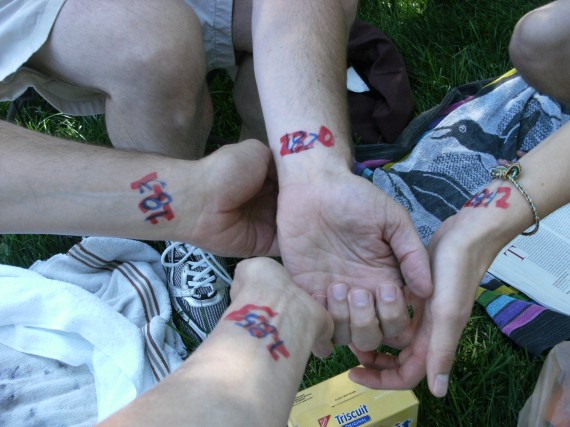My wife and I went to Ikea the other day. Have you ever been there? It’s a landscape littered with furniture that needs an allen wrench to be put together, inexpensive household items, and even plants and food.

The closest location to our home is in suburban Chicago. Chicago is one of the largest cities in America, and certainly one of the most cosmopolitan cities in the world.
That was evident in Ikea’s aisles as we heard European, Asian, and Latin languages all within a matter of a couple of hours. It was exhilarating and fascinating. Here we all were under one roof from all corners of the globe.
I’m sure most of the people who spoke in other tongues could speak English. Otherwise, how could they manage to ask questions, directions, or check out? I was reminded that I am sadly mono-lingual. I would love to speak another language (Italian would be my choice so that when I go to Italy someday I would be able to ask for a specific type of pasta without even using a menu). Americans expect that English will be spoken everywhere, and are then surprised when it’s not. In that way we are selfish.
The thought occurred to me that Ikea is a sort of modern day Pentecost waiting to happen. “Now there were staying in Jerusalem God-fearing Jews from every nation under heaven. When they heard this sound (of the wind), a crowd came together in bewilderment, because each one heard their own language being spoken” (Acts 2:5-6).
The world has come to our country’s shores. Like on the first Pentecost, the nation’s have been brought to us. Even if only English is spoken there are opportunities for the Spirit to work in and through us to bring life and hope to an Ikea filled with foreign-language speakers.
The world today is small. It is connected by every new technology under the sun. It is increasingly easy to meet, and reach, and understand others, no matter their land of origin.
Ikea is a microcosm of our modern-day world. There are opportunities for Gospel-giving, Gospel-living, and Gospel-loving.
I wonder if the two Buddhist monks we saw would have been open to listening to the story of Jesus.
Where have you noticed unique opportunities for Gospel-giving?

















